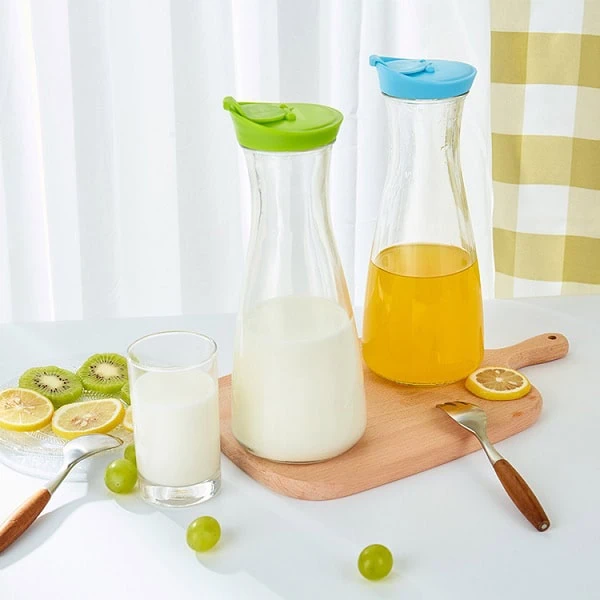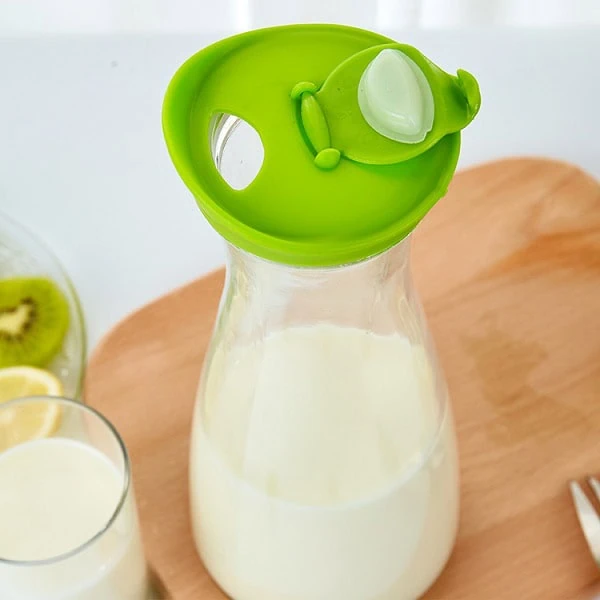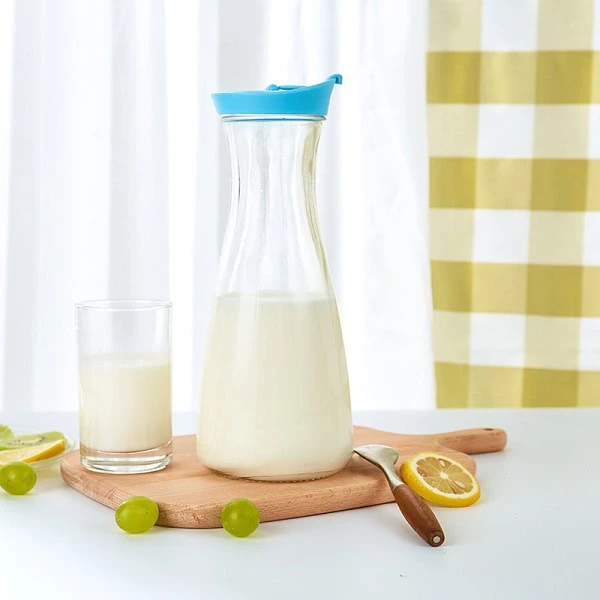Yes, glass milk bottles are generally better for the environment compared to plastic bottles. Here’s a detailed breakdown of why glass is the more sustainable option:

Glass is 100% Recyclable
One of the most significant environmental advantages of glass is that it is 100% recyclable. Unlike plastic, glass does not degrade in quality when it is recycled. This means that glass bottles can be reused indefinitely without losing their integrity, making it a far more sustainable material in the long run. When glass bottles are recycled, they are typically turned into new glass products or reused for packaging, reducing the need for raw materials and conserving natural resources.
In contrast, plastic recycling is less efficient. While plastic can be recycled, it often loses quality after each cycle, and many types of plastic cannot be recycled at all. This results in large amounts of plastic waste that end up in landfills or the environment.
No Harmful Chemical Leaching
Glass is a chemically inert material, which means it doesn’t leach harmful chemicals into its contents, even when exposed to light or heat. Many plastic bottles, especially lower-quality ones, contain harmful chemicals like BPA (Bisphenol A), which can leach into the milk and pose risks to human health. These chemicals also contribute to environmental pollution when plastic bottles break down.
Because glass doesn’t leach chemicals, it ensures that milk remains free from harmful contaminants, which is beneficial for both human health and the environment. This reduces the overall environmental and health impacts that come from the production and disposal of plastic bottles.

Reduction in Plastic Pollution
Plastic pollution is one of the most pressing environmental issues today. Millions of tons of plastic waste end up in landfills and the ocean every year, harming wildlife and ecosystems. Plastic bottles are a major contributor to this problem because they are often not recycled properly and can take hundreds of years to break down.
Glass, on the other hand, is not a contributor to plastic pollution. When glass bottles are disposed of properly, they can be recycled and reused, reducing the amount of waste that ends up in landfills or the ocean. By choosing glass over plastic, consumers and businesses help reduce the overall demand for plastic production and the environmental damage caused by plastic waste.
Longer Lifespan and Reusability
Glass bottles can be used and reused many times before they need to be replaced. In businesses where glass bottles are collected, cleaned, and refilled, this can significantly reduce waste generation. The durability of glass ensures that bottles can withstand many cycles of reuse without losing their integrity. This is not the case with plastic bottles, which tend to degrade after several uses and often end up being discarded.
By promoting the reuse of glass bottles, fewer resources are required for new packaging, further reducing the environmental footprint associated with packaging production.

Conclusion
In summary, glass milk bottles are significantly better for the environment than plastic. They are infinitely recyclable, reduce plastic pollution, don’t leach harmful chemicals, and have a lower overall environmental impact over their lifespan due to their reusability. Although the production of glass bottles may consume more energy initially, the long-term benefits of glass, including its durability, recyclability, and minimal environmental impact, make it a far more sustainable option than plastic.
By switching to glass milk bottles, individuals and businesses can contribute to reducing plastic waste and support a more sustainable, eco-friendly future.

